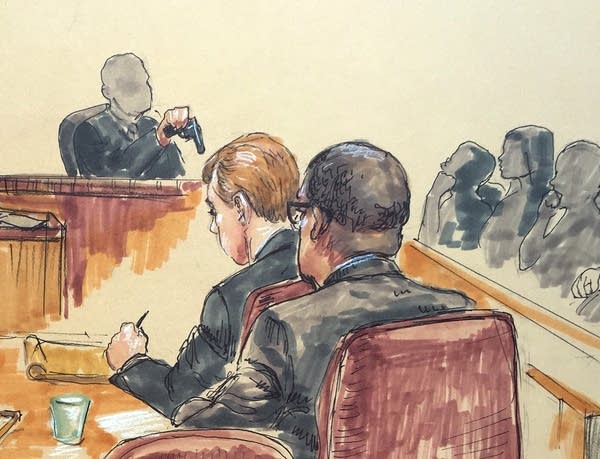Yanez juror: 'Nobody was OK with it'

An expert witness called by the defense testifies on the ninth day of the trial of Jeronimo Yanez
Nancy Muellner for MPR News
Go Deeper.
Create an account or log in to save stories.
Like this?
Thanks for liking this story! We have added it to a list of your favorite stories.


